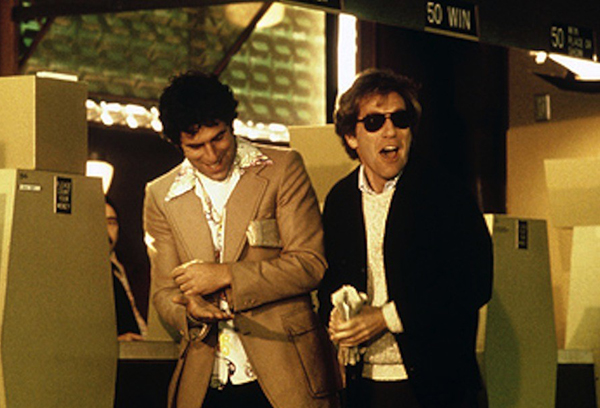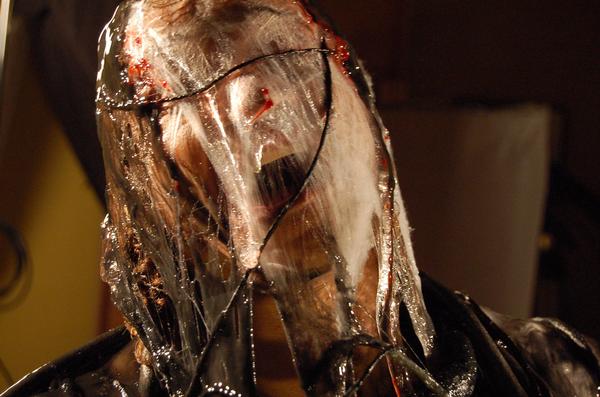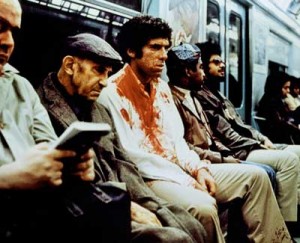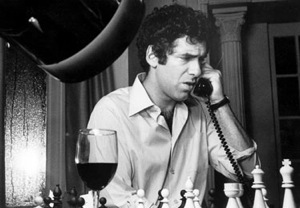California Split isn’t just one of my favorite Altmans, but one of my favorite films, period. The story of two friends of convenience who quietly, unwittingly, become real friends while trying to bring down the house in Las Vegas is like walking in on a brisk, fascinating conversation that seems like it’ll never end, until it does, abruptly, wistfully.
In “California Split: 40 Years Later,” an epic three-part interview (one and two and three), Kim Morgan of the Los Angeles Review of Books interviews stars Elliott Gould and George Segal and screenwriter Joseph Walsh. The wonderful talk ranges well beyond the movie, capturing Hollywood of a certain era. One tidbt: Gould passed on starring in McCabe & Mrs. Miller. A brief excerpt:
“Kim Morgan:
Casinos are like movie sets. You know, an enclosed world of playing, making money, losing, performing, with the big star and the character actors and the extras. Rules and chaos at every turn. It’s a separate universe that anyone off the street walking into feels immediately intimidated or confused by.
George Segal:
Yes. I like that analogy. It’s a lot like that. We are the living embodiment of a sequel to California Split 2. I mean, this is it.
Elliott Gould:
The level of risk what you’re talking about is for sure …
Joseph Walsh:
And they split … these two magnificent actors in this picture, these characters, they split. The beauty, certainly aided with Altman too. And then the idea of gambling. We’ve all been to Vegas. Do you ever watch the faces there? Do you ever watch the people who have never gambled? They are so excited. And you pay for that excitement. But to look underneath, underneath all that, there is a trap. There is a sadness. And for the George character, I always thought, this is the kind who would always end up in trouble. He gambles because something is missing in his life. I didn’t even know what that was. What was missing. Even when I was writing. And we didn’t need to know. His gambling is a way to kill the something that’s missing. Whereas Elliott’s character gambles as a way of life. His emotional content for everything and the laws that he steals time away … these are the words, ‘I steal time. I can’t steal any more time.’ And to see that come together as a writer, and to see the two actors pull that off to such an extent, I’m not even that amazed anymore. You watch it again and it’s not dated at all because these feelings and these things are never gonna stop. In the world of gambling, they will never stop. These emotional feelings.”




